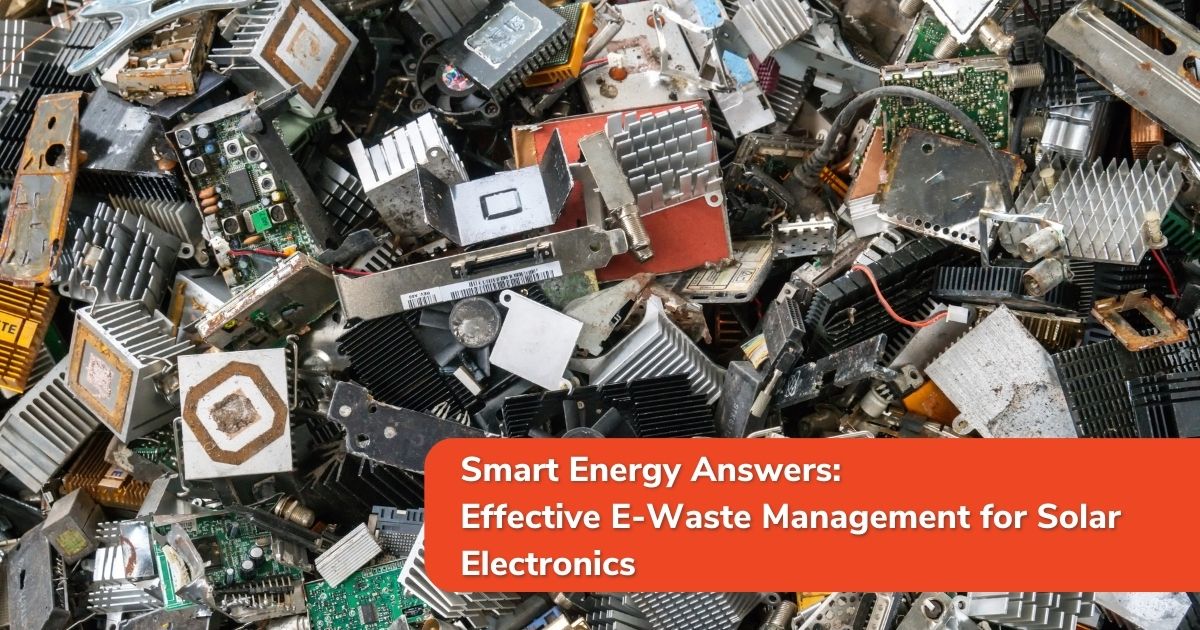Effective E-Waste Management for Solar Electronics

Discover how to effectively manage e-waste from solar electronics to promote sustainability and environmental responsibility.
Understanding E-Waste and Its Impact on the Environment
Electronic waste, or e-waste, refers to discarded electronic devices such as solar panels, batteries, and inverters. Improper disposal of these items can lead to environmental pollution and health hazards.
When e-waste is not recycled or disposed of correctly, toxic substances like lead, mercury, and cadmium can leach into the soil and water sources, contaminating the environment.
Challenges Faced in E-Waste Management for Solar Electronics
One of the main challenges in managing e-waste from solar electronics is the lack of proper disposal infrastructure. Many regions do not have designated recycling facilities for solar panels and related components.
Additionally, the complex nature of solar electronics makes it difficult to separate and recycle different materials, leading to inefficient waste management practices.
Implementing Sustainable Practices for E-Waste Disposal
To address the challenges of e-waste management, it is essential to implement sustainable practices such as extended producer responsibility (EPR) programs. These programs hold manufacturers accountable for the end-of-life disposal of their products.
Furthermore, promoting the reuse and refurbishment of solar electronics can help extend their lifespan and reduce the amount of e-waste generated.
Role of Recycling and Circular Economy in E-Waste Management
Recycling plays a crucial role in e-waste management by recovering valuable materials from discarded electronics. These materials can be reused in the manufacturing of new products, reducing the need for virgin resources.
By embracing the circular economy model, where products are designed for reuse and recycling, we can create a more sustainable system for managing e-waste from solar electronics.
Future Trends and Innovations in E-Waste Management
As technology continues to advance, innovative solutions for e-waste management are emerging. This includes the development of more efficient recycling processes and the use of automation and artificial intelligence to streamline waste sorting and recycling.
Looking ahead, collaborations between governments, industries, and consumers will be essential to drive progress in e-waste management and create a greener future for solar electronics.
%20(1).png?width=265&height=96&name=www.smartenergyanswers.com.auhs-fshubfsSmart%20Energy%20Answers%20Logo%20(HIRES)%20(1).png)

.png?width=514&height=121&name=Tesla%20Powerwall%203%20(new).png)







